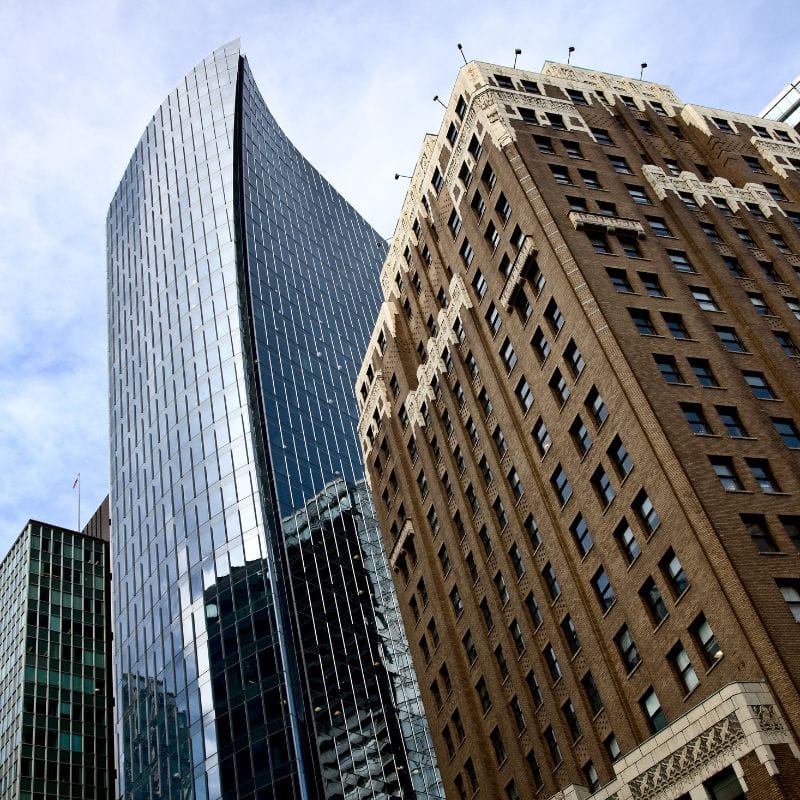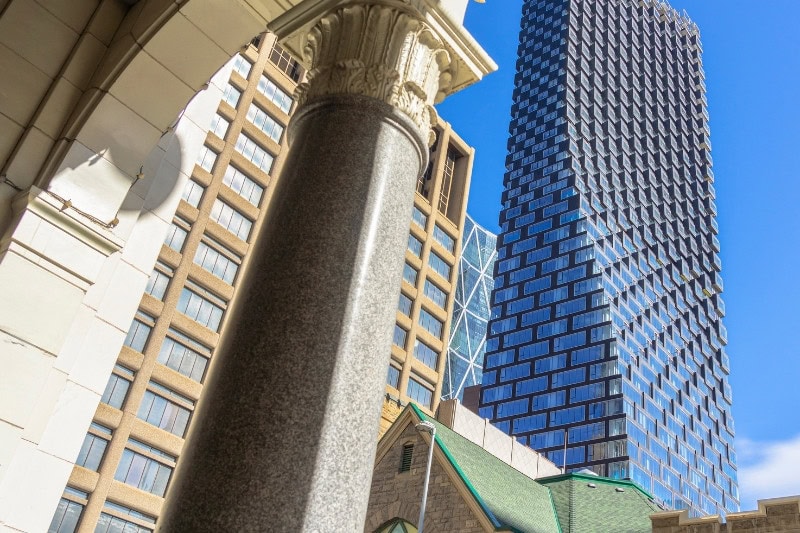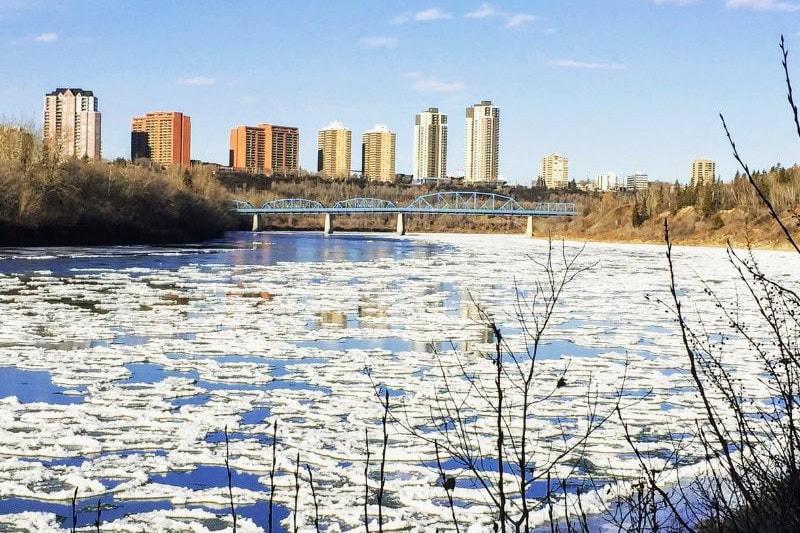Vancouver’s stunning scenery and urban vibrancy are undeniable. But there’s a flip side to this beauty: Vancouver has a reputation as a North American leader in living expenses. This investigative series dives deep into why is Vancouver so expensive, exploring factors like skyrocketing real estate prices and everyday expenses that impact both newcomers and long-term residents. We’ll untangle the complex web of factors that contribute to Vancouver’s status as a desirable yet expensive destination.
Immigration news directly into your inbox
Housing Market Dynamics
Vancouver’s housing market is a key contributor to the city’s high cost of living, characterized by skyrocketing real estate prices and a competitive market environment. This surge in housing costs can be primarily attributed to a combination of limited supply and robust demand. The question of why is Vancouver so expensive is closely linked to these dynamics. The city’s stunning natural scenery and high quality of life continue to draw people from all over the world, creating a relentless demand for housing in a market where supply simply cannot keep pace.
Strict zoning laws in Vancouver, combined with a significant portion (around 52%) of land reserved for agriculture, restrict the developable area for housing. Vancouver’s geography further complicates this issue, as the city’s location between the Pacific Ocean and Coastal Mountains limits outward expansion. With only about 15% of land suitable for housing, according to a report by the Fraser Institute, this scarcity fuels competition for available homes, driving prices ever higher.
The impact of these housing market conditions is profound, affecting not only potential homeowners but also renters who face increasing rents as property values climb. This part of our series will delve deeper into how these dynamics shape the cost of living in Vancouver, providing a foundation for understanding the broader economic and social impacts of the housing market’s volatility.

Foreign Investment
Let us take a look at why Is Vancouver so expensive when it comes to their Foreign Investment.
Impact of Foreign Capital
Foreign investment has played a pivotal role in shaping Vancouver’s real estate market, often blamed for the city’s skyrocketing property prices. Statistics show foreign buyers accounted for roughly 10% of real estate transactions in Metro Vancouver before the implementation of the foreign buyer tax in 2016. Vancouver’s reputation as a safe haven, with a stable economy and attractive lifestyle, has drawn significant attention from international investors seeking secure and profitable opportunities in real estate. This influx of foreign capital has undeniably inflated property values and created a market dynamic where local buyers compete with wealthy foreign investors who can afford to pay premium prices, further pushing affordability out of reach for many residents.
Government Response and Public Debate
In response, the British Columbia government implemented measures like the foreign buyer tax to cool the market and make housing more accessible to Canadians. However, the effectiveness and fairness of these interventions are debated. This has sparked a broader conversation about how to best manage foreign investment in Vancouver’s real estate market. Striking a balance between encouraging investment and maintaining affordability remains a complex and delicate matter.
Land Scarcity
One of the defining characteristics of Vancouver’s real estate market, and a key reason why is Vancouver so expensive, is its significant land scarcity, which has a direct impact on housing affordability and availability. Nestled between the Pacific Ocean and the Coastal Mountains, Vancouver has limited land for expansion, which naturally restricts the supply of new housing. This geographic reality is compounded by strict zoning laws and a significant portion of land dedicated to the Agricultural Land Reserve, which preserves agricultural land but further limits residential development.
Land scarcity in Vancouver is a major culprit behind its high housing costs. With only around 15% of the land suitable for development, competition for available properties is fierce. This situation worsens during periods of rapid population growth, where demand far outstrips the limited supply. As a result, housing prices skyrocket, and existing neighborhoods experience increased density with more high-rise developments, sometimes altering the community character.
Furthermore, high land values incentivize developers to focus on luxury projects that offer a higher return on investment compared to affordable housing. This trend has resulted in a shortage of units accessible to middle- and low-income families. The low vacancy rate reflects this issue, making it incredibly difficult to find affordable housing, and contributing to a growing homelessness crisis and housing insecurity for many residents. The city has implemented policies like density bonusing and inclusionary zoning to address these challenges, but achieving a balance between growth, sustainability, and affordability remains a complex and ongoing struggle.
Cost of Living
Beyond the exorbitant housing market, Vancouver’s overall cost of living further compounds the financial burden on its residents, contributing significantly to why is Vancouver so expensive. This city is not only known for high real estate costs but also for pricey day-to-day expenses, including groceries, transportation, and utility services. Such costs significantly influence the quality of life and the economic decisions of those living in or considering moving to Vancouver.
Beyond housing, Vancouver’s daily necessities can take a hefty chunk out of your budget. Groceries tend to be 10-20% pricier than the national average due to transportation costs and import fees. Since many goods need to be brought in from outside the province, these additional expenses are passed on to consumers. British Columbia’s carbon tax adds pressure to fuel prices, leading to higher costs for both personal vehicles and public transit. The combined effect of these expenses can make daily life surprisingly expensive for newcomers accustomed to lower costs elsewhere in Canada.
There is a silver lining, however. Utilities like electricity and water are generally more affordable in Vancouver compared to other major North American cities thanks to the province’s abundant hydroelectric power. But the high cost of housing often overshadows these savings. Many residents find a larger portion of their income goes towards basic housing and utility expenses than they might experience in other locations. Dining out, entertainment, and recreational activities also carry a premium in Vancouver, further solidifying its reputation as a costly city.
While Vancouver has invested in improving public infrastructure and increasing the availability of affordable services to address these issues, the high cost of living remains a significant challenge. The next parts of this series will continue to explore how population growth, government policies, and the local economy further shape these dynamics.

Population Growth
Vancouver’s population growth is a critical factor contributing to why is Vancouver so expensive. As one of Canada’s most desirable locations, it attracts a steady influx of new residents from within the country and around the globe. This continuous growth not only pressures the already strained housing market but also impacts infrastructure and public services, further contributing to the rising costs.
Vancouver’s population has exploded, surging over 31% between 2011 and 2021, making it one of Canada’s fastest-growing regions.
This rapid growth is fueled by two key factors:
- A booming tech and film industry attracts a skilled workforce seeking career opportunities.
- Stunning landscapes and a high quality of life draw those seeking a desirable lifestyle.
However, challenges arise due to the rapid influx of residents:
- The increasing population exacerbates the existing housing shortage, leading to spikes in real estate prices and rent. Average house prices in Metro Vancouver have more than doubled over the past decade.
- The strain extends beyond housing, impacting public services like healthcare, education, and transportation. These systems require substantial investments to expand capacity and maintain quality as the population grows.
The city’s response involves developing new housing strategies and infrastructure projects aimed at accommodating this growth sustainably. Efforts include expanding public transit systems, increasing the density of existing neighborhoods, and promoting new residential developments. However, these solutions require time and significant financial investment, presenting ongoing challenges in balancing growth with livability.
Government Policies and Taxes
Let us take a look at why Is Vancouver so expensive when it comes to their Government Policies and Taxes.
Foreign Buyer’s Tax
Government interventions play a substantial role in shaping Vancouver’s real estate market, with the Foreign Buyer’s Tax being a prime example. This policy was implemented in 2016 with the aim of curbing the rapid escalation of housing prices fueled by overseas investment. The tax imposes an additional levy on real estate purchases made by non-Canadians in British Columbia. Statistics show that the Foreign Buyer’s Tax resulted in a 15% decrease in foreign purchases of real estate in Metro Vancouver in the following year. However, the long-term effectiveness of this policy remains a subject of ongoing debate.
Speculation and Vacancy Tax
The British Columbia government actively shapes the housing market through various policies. The Foreign Buyer’s Tax, implemented in 2016, imposes an additional levy on non-Canadian real estate purchases, leading to a 15% decrease in such purchases initially. The Speculation and Vacancy Tax (SVT) targets vacant properties, aiming to increase rental supply and deter speculation by incentivizing owners to either rent out their vacant units or sell them. While the SVT has seen some success in increasing rental inventory, its long-term impact on affordability and potential influence on rental prices remain topics of debate.
Progressive Property Taxes
Property transfer taxes and progressive property taxes are tools used by the government to generate revenue and address affordability concerns. These taxes are higher for more expensive properties, ensuring a larger contribution from wealthier residents to municipal and provincial coffers. This revenue helps fund essential public services like infrastructure, schools, and healthcare, maintaining Vancouver’s high quality of life.
However, critics argue that these efforts need to be coupled with measures directly targeting affordability. Increasing the supply of affordable housing and improving wages relative to living costs are crucial for long-term solutions. Striking a balance between attracting businesses with tax policies and ensuring affordability for all residents remains a complex challenge for Vancouver’s policymakers.

Tech Industry Influence
The tech industry has become a major economic force in Vancouver, significantly influencing both the job market and the real estate sector. As a burgeoning tech hub, Vancouver has attracted numerous high-profile tech companies and startups, driven by its strategic Pacific Rim location, quality of life, and a highly educated workforce. This influx of tech firms has brought economic prosperity but also contributed to rising property prices and increased living costs. This situation underscores the broader question of why is Vancouver so expensive, as the booming tech sector continues to push affordability limits for many residents.
Economic Boom and Housing Demand
Vancouver’s thriving tech industry is a double-edged sword for housing. Major tech companies create thousands of high-paying jobs, with salaries up to 40% higher than the national average. This fuels demand for housing in an already strained market. Tech workers can outbid others for limited properties, driving up rents and home prices across the board, especially in areas near tech hubs. While the tech boom benefits the economy, it risks displacing long-term residents and altering community dynamics due to rising housing costs.
Infrastructure and Service Enhancements
The tech boom’s impact extends beyond job creation. It fuels infrastructure and service improvements that benefit all residents, not just those working in tech. Faster commutes thanks to upgraded public transit and blazing-fast internet speeds, crucial for the tech industry itself, are just a few examples. Vancouver’s commitment to expanding its SkyTrain network by 10 kilometers in the coming decade exemplifies this focus on improved mobility. Download speeds in Vancouver have surged over 30% in just five years, placing it among Canada’s fastest internet providers. The tech boom even influences green spaces, with plans for new parks and bike paths in areas experiencing rapid tech growth.
This all makes Vancouver a more attractive city, potentially leading to higher costs. However, the city’s improving infrastructure and services contribute to a higher quality of life for everyone.
Effects on Local Businesses
The soaring cost of living and the high prices commanded by real estate in Vancouver have had a significant impact on local businesses, influencing both operational costs and consumer spending patterns. As property values rise, so too do the rents for commercial spaces, which can put immense pressure on small and medium-sized enterprises trying to stay afloat in an increasingly competitive market. This dynamic contributes to the broader discussion around why is Vancouver so expensive, highlighting the ripple effects of high real estate costs on the entire local economy.
Rising Operational Costs
The tech boom isn’t just about housing. Many local businesses face soaring commercial rental rates, up over 50% in the past decade. This squeezes profits and limits expansion, especially for startups and independent retailers reliant on foot traffic. Here’s how rising costs impact businesses:
- Squeezed Profits: High rents eat into business margins, making it harder to operate profitably.
- Limited Growth: Rising costs restrict the ability for businesses to expand or invest in improvements.
- Challenges for New Businesses: Startups and independent retailers often rely on affordable locations for customer traffic. High rents make it difficult for them to compete.
- Relocation or Innovation: Some businesses move to cheaper areas, sacrificing prime locations for affordability. Others embrace online platforms to reduce overhead costs.
- Homogenization Risk: The trend of rising costs could lead to a landscape dominated by large chains, pushing out smaller businesses that can’t keep up.
Impact on Consumer Spending
The tech boom’s impact extends beyond just attracting new residents. Soaring commercial rental rates, up over 50% in a decade, squeeze profits and limit expansion for many local businesses. This burden is particularly felt by startups and independent retailers reliant on affordable locations with high foot traffic. Some businesses are forced to relocate to cheaper areas, sacrificing prime locations for affordability. Others are innovating their business models, embracing online platforms and e-commerce to reduce overhead costs. This trend risks a homogenized business landscape, with large chains replacing smaller, independent businesses that struggle to compete in an expensive market.
High living costs also create a ripple effect on consumer spending. As residents dedicate a larger portion of their income towards housing and essentials, discretionary spending on non-essential goods and services takes a hit. This translates to lower sales for local businesses, particularly those in retail, hospitality, and leisure sectors that traditionally rely on consumer spending. Businesses need to adapt to this new reality by diversifying their offerings or finding ways to enhance their value proposition to attract and retain cost-conscious customers. The high cost of living creates a complex cycle, but it can also be a catalyst for innovation and resilience among businesses that can adapt and thrive under these challenging conditions.
Immigration news directly into your inbox
Conclusion
Throughout this series, we have explored the various factors that make Vancouver one of the most expensive cities in North America. The high cost of living is influenced by foreign investments, limited land, a growing tech industry impacting local businesses, geographical constraints, and intense market forces. Despite government attempts to address these issues, finding a balance between growth and affordability remains a challenge.
To keep Vancouver an attractive place to live, it’s crucial for policymakers, business leaders, and community stakeholders to work together on sustainable strategies that improve affordability and promote economic diversity. Such collaborative efforts are key to building an inclusive community and ensuring Vancouver can support people from all income levels and backgrounds. For more insights into financial planning in such an expensive city, visit our partner Qtrade Direct Investing.
Julce
Julce is an expert content writer specializing in topics about Canada, adept at blending practical advice with engaging stories that capture Canadian life.
Learn more about Vancouver
You will find helpful information about setting up in this vibrant and lively city.
Vancouver Social Groups: Connect, Network, and Build Friendships
Discover how Vancouver social groups can help you connect, network, and build lasting friendships in this vibrant city.
Moving to Calgary from Vancouver: What You Need to Know
Moving to Calgary from Vancouver brings new opportunities with its growing economy and affordable living. This guide provides essential tips to help you transition smoothly and enjoy your new city.
Edmonton vs Vancouver: West Coast or Prairie Cities?
Deciding between Edmonton vs Vancouver? Explore the unique lifestyles, attractions, and affordability of Canada's West Coast dream and Prairie metropolis!
Are you ready to start your application, or not sure which option is best for you?


Start Your Move to Canada Today—Contact Us Now!
Fill out the form, and our team will review your inquiry. We’re here to guide you through every step of your immigration journey.
"*" indicates required fields



